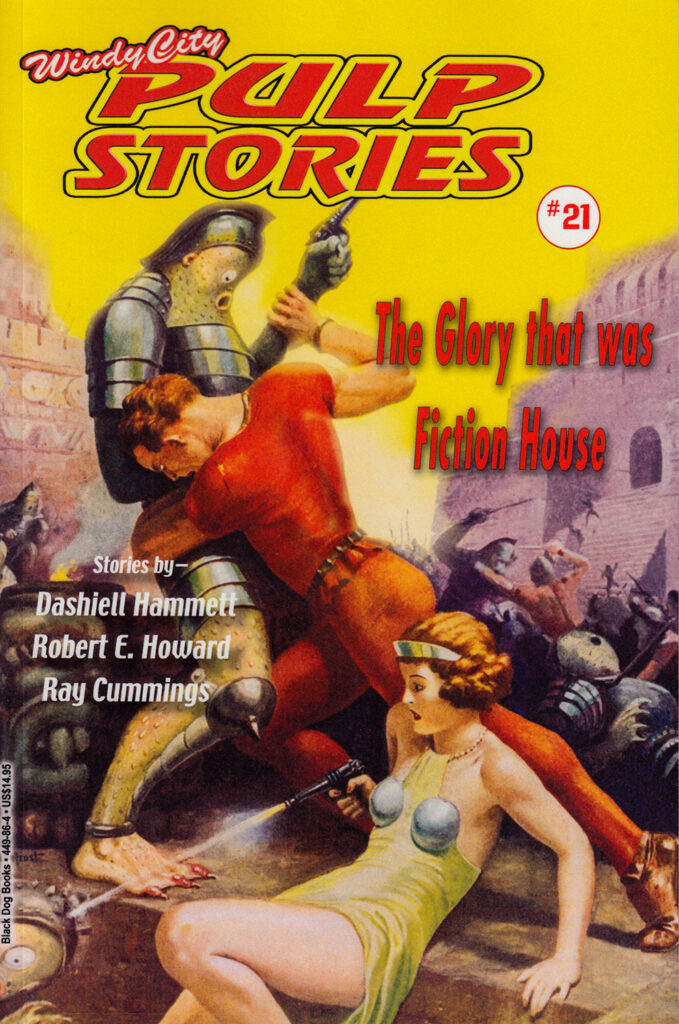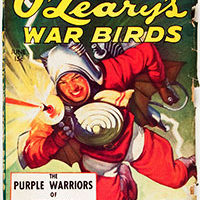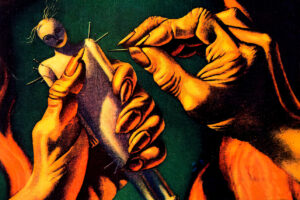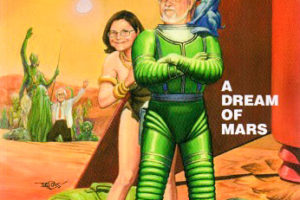 This year, the focus is on Fiction House publishers with new and reprinted non-fiction works, as well as a trio of fiction reprints. Cover is from the Fall 1942 issue of Planet Stories by Alexander Leydenfrost.
This year, the focus is on Fiction House publishers with new and reprinted non-fiction works, as well as a trio of fiction reprints. Cover is from the Fall 1942 issue of Planet Stories by Alexander Leydenfrost.
Fiction House existed from 1921 to 1955. Mainly a pulp-magazine publisher, they later got into comics, interestingly using similar titles for the comics as their pulps (Jungle Stories and Jungle Comics, Air Stories and Air Comics, Planet Stories and Planet Comics, etc.), and brought over some of their characters between the two media. It was started by John Glennister and John Kelly, who formed Glen-Kel Publishers. John F. Byrne was a major editor there, and later publisher.
Their editorial focus was on stories with action. Don’t describe the characters, show them in action. Many of the non-fiction pieces in the issue focus on their editorial demands. While they did several genres — aviation, action-adventure, romance, detective, jungle, science-fiction — they were heavy on westerns.
There was a period of time when they didn’t publish, and one of the articles touches on the cause of this.
For non-fiction, we get two new pieces. From Will Murray, we get a good view of the rise and fall of Fiction House, and why it went on hiatus, and its early successes. This is a good history of Fiction House, though more on the earlier pulp magazine side. John Locke provides a look at 1929 in what appears to be a planned larger work that focuses on Arthur J. Burks. A good insight into what one pulp author was expected to produce.
From August Lenninner is an examination of then-recent issues of Black Aces magazine, Fiction House’s answer to Black Mask. While clearly a reprint piece, I have no idea the original source. There are a lot of descriptions of stories that ran there.
We then get from The Author & Journalist two pieces from 1927 and ’30 that show what Fiction House was expecting and their needs in filling their magazines. This gives an insight into what would be pulp writers were expected to produce.
There is a collection of ads that ran in trade publications to sell Fiction House magazines to vendors, an example of a rejection letter, and a brief note of someone trying to sue because their name was used in a story.
For fiction, we get a trio of works from well-known authors Dashiel Hammet, Robert E. Howard, and Ray Cummings. Hammet is best known for his hard-boiled detectives in Black Mask, but here is his only work that appeared at Fiction House.
Howard is known for Conan and other adventurer characters and his many works at Weird Tales, but he worked to get published elsewhere. Here is his first Sailor Steve Costigan stories, “The Pit of the Serpeant,” from Fight Stories (July 1929). As a bonus we get a foreward and a collection of correspondence from Ficion House to REH.
And from science-fiction author Cummings is one of his 13 stories that appeared in Planet Stories. All of these have been reprinted by Black Dog Books in War Nymphs of Venus: The Complete Planet Stories.
So it’s another great issue. I was glad to see this one was available on Amazon, as the past few volumes they were not, which made them hard to get. Sadly it looks like #19 is not available yet, though you can get everything else back to issue #8. I’ve reviewed all of these and recommend them all to any pulp fiction fan.



